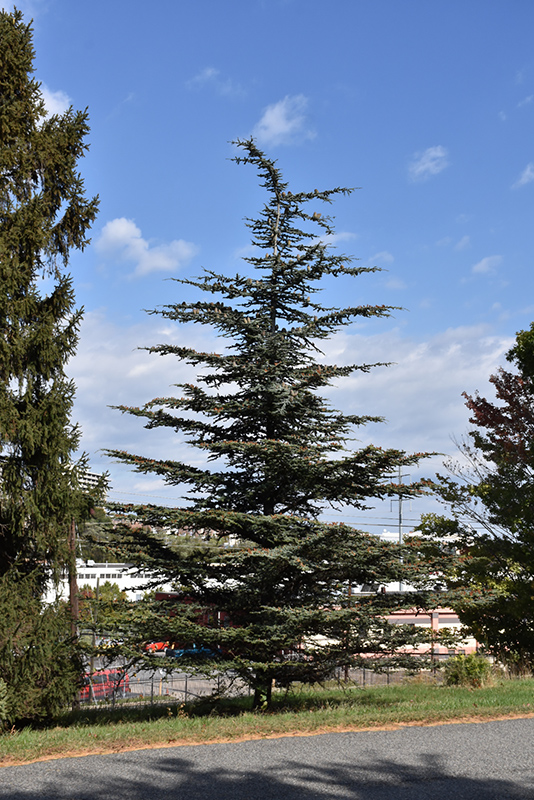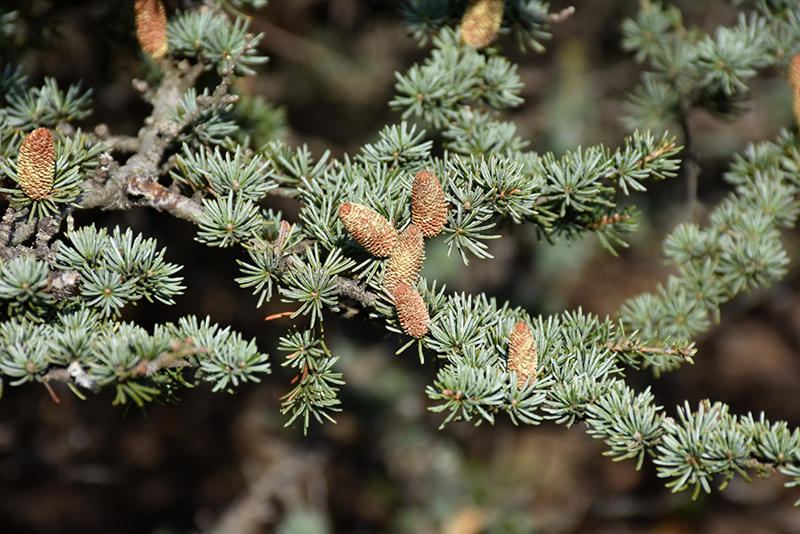>> Home
Brevifolia Cedar of Lebanon
Cedrus libani 'Brevifolia'
Height: 60 feet
Spread: 80 feet
Sunlight:
![]()
Hardiness Zone: 5
Other Names: Cedrus libani var. brevifolia
Description:
A picturesque cedar, with a spreading, open habit of growth and massive horizontal branches; pyramidal when young, becoming flat-topped when mature; dark green needles have silver-blue stripes; grows very large and wide, needs lots of room
Ornamental Features
The Brevifolia Cedar of Lebanon is primarily valued in the landscape for its characteristic tiered habit of growth. It has attractive dark green foliage with silvery blue stripes. The needles are highly ornamental and remain dark green throughout the winter. The tan fruits are held in cones from mid spring to early summer.
Landscape Attributes
The Brevifolia Cedar of Lebanon is an open evergreen tree with a stunning habit of growth which features almost oriental horizontally-tiered branches. Its relatively fine texture sets it apart from other landscape plants with less refined foliage.
This is a relatively low maintenance tree, and usually looks its best without pruning, although it will tolerate pruning. It has no significant negative characteristics.
The Brevifolia Cedar of Lebanon is recommended for the following landscape applications;
- Accent
- Shade
Planting & Growing
The Brevifolia Cedar of Lebanon will grow to be about 60 feet tall at maturity, with a spread of 80 feet. It has a low canopy with a typical clearance of 4 feet from the ground, and should not be planted underneath power lines. It grows at a slow rate, and under ideal conditions can be expected to live to a ripe old age of 150 years or more; think of this as a heritage tree for future generations!
This tree should only be grown in full sunlight. It is very adaptable to both dry and moist growing conditions, but will not tolerate any standing water. It may require supplemental watering during periods of drought or extended heat. It is not particular as to soil type or pH. It is quite intolerant of urban pollution, therefore inner city or urban streetside plantings are best avoided, and will benefit from being planted in a relatively sheltered location. This is a selected variety of a species not originally from North America.

